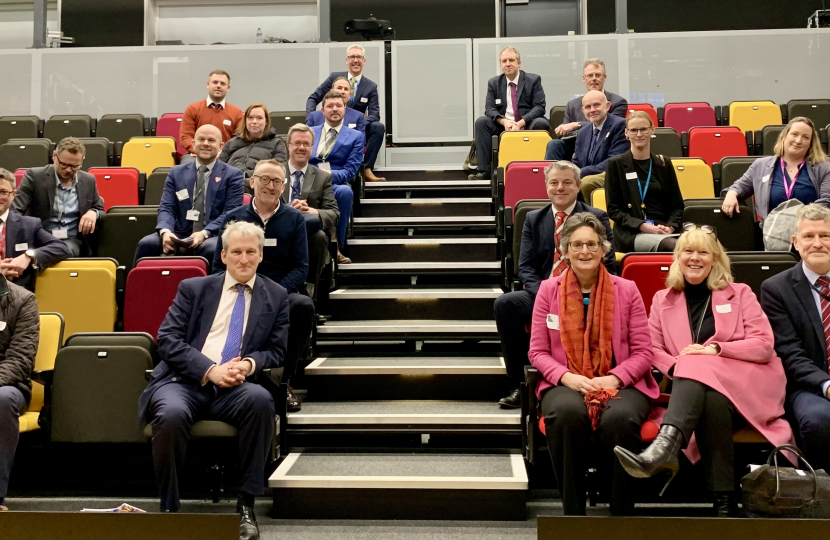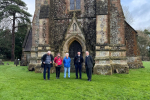
My latest article for the Herald and Post...
I recently joined a group of school and college leaders from across Hampshire at Swanmore College at a meeting convened by the County Council and my colleague Flick Drummond, MP for Meon Valley.
The subject for discussion was 16-18 education, and the plans for the Advanced British Standard, the new programme of study and qualification at sixth-form level, in development and due to come in in several years’ time.
The Swanmore meeting was a great opportunity for me to hear direct the thoughts of Heads and Principals locally, including from East Hampshire.
England’s current system has a lot of strengths, in A Levels, T Levels and reformed apprenticeships. But we are an international outlier in some respects.
The first is breadth of study. In comparable countries, young people typically study about seven subjects at this age, whereas in England you usually do three, or sometimes four, subjects at A Level.
We are also unusual in not everyone studying maths and English (or the native language) to 18. These two subjects have huge value in the workplace and far beyond.
The English system involves quite a lot of self-study periods, whereas elsewhere there are more taught hours. Our 1,280 taught hours at A Level compares to a typical 1,400 in other countries, and as high as 2,000 in some.
We also have an unusually wide array of different qualification types in the vocational sphere, which are not always easy for employers to understand.
The Advanced British Standard, or ABS, is designed to build on the strengths of the English system, while addressing these things. And it seeks, too, to bridge the divide between the academic and the technical/vocational route.
The outline of the ABS is that you will do five subjects, consisting of three ‘Majors’ and two ‘Minors’, which could be a blend of ‘academic’ and ‘technical’ options. But the combination will always include English and maths in some form.
I say “in some form” because the idea is not that everyone would be doing the equivalent of maths A Level. There are already a number of different types of maths that young people do. Alongside maths (and further maths) A Level, there are also core maths and functional skills maths. T Levels have maths (and English and digital skills) embedded in the vocational course content.
The different forms that maths and English could take, for different people, is a big theme in discussions with young people themselves, and it featured significantly, too, in the meeting with Hampshire education leaders.
The ABS is still some years off but it is right that we prepare for it now. I’m very grateful to everyone who has joined in the discussion.


